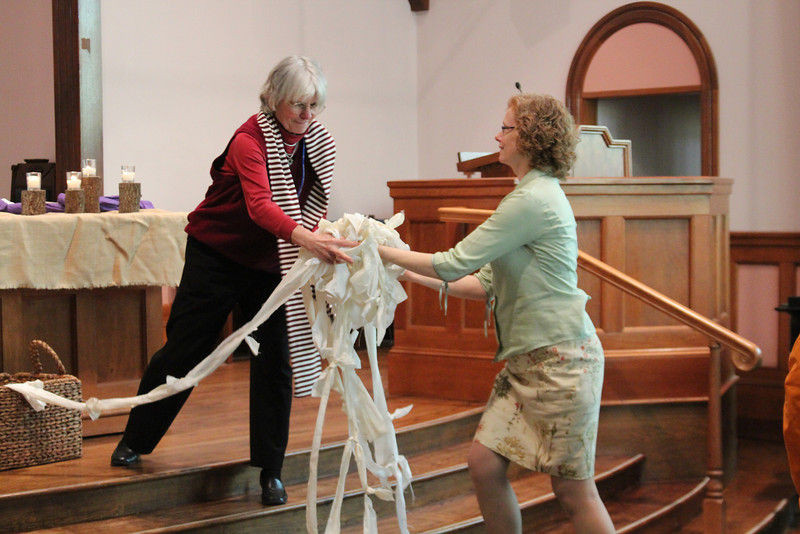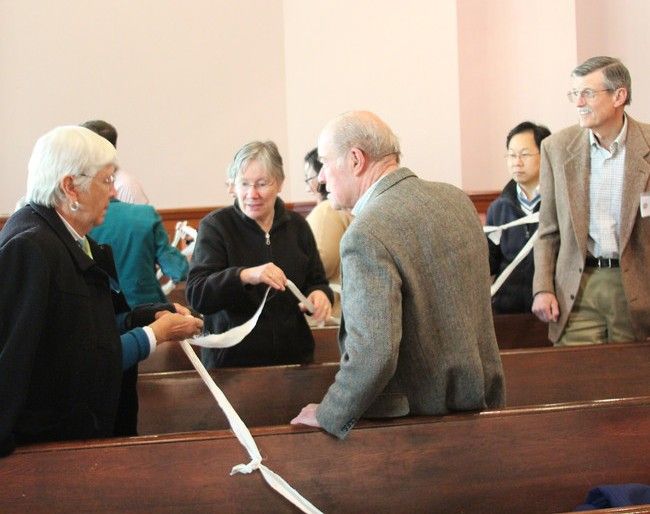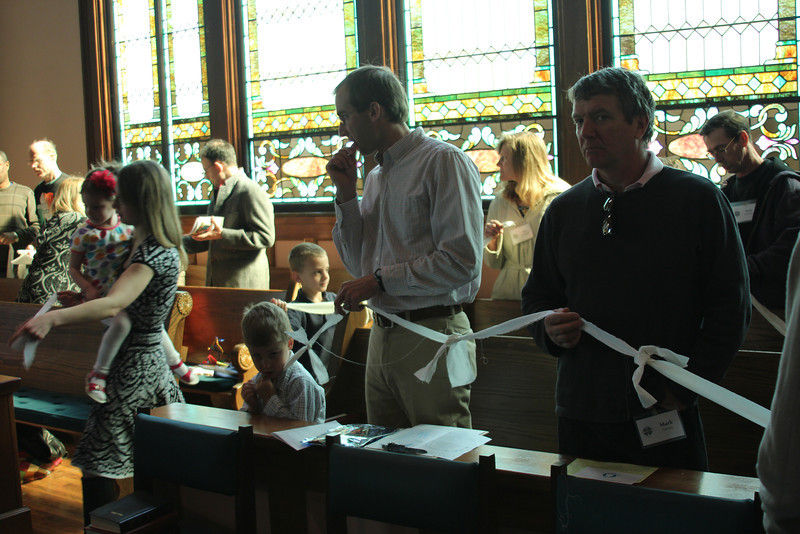It doesn’t happen just once. It doesn’t happen just once, this miracle we are preparing for at the end of the 40 days of Lent. It doesn’t happen just once, God coming and turning death into life.
The prophet Ezekiel tells us how God’s breath causes life to rise from a valley of dry bones. The prophet Isaiah writes about a new branch rising from the stump of Jesse. And the writer of the Gospel of John teaches us that Jesus raises his friend Lazarus from death after four days in the tomb. It doesn’t happen just once, God coming and  turning death into life.
turning death into life.
Now I will admit that this last story, this story of Lazarus, is a hard one. It’s hard, because Jesus does what so many of us have wished we could do. When he is the one grieving, when he weeps at his friend’s graveside, Jesus reverses the irreversible. He cries, “Lazarus, come out!” And Lazarus lives; Lazarus rises from the grave. Who among us has not longed to do this, to bring our beloved ones back to life? Who among us does not long for one more conversation, for one more embrace?
But we can’t do what Jesus did. As I mentioned several weeks ago, we almost never play the role of Jesus in these gospel stories. And besides that, it is in the natural way of things that life is limited, that bodies die and return to the earth. It is in the natural way of things that souls return to the heart of God. We cannot prevent it, and God does not prevent it, even when it happens much too soon, or much too sadly. No, it happens, and we weep by the side of the grave, and Jesus weeps with us.
Is it strange to say, then, that I trust that this odd story is somehow true? I trust that it is true, because I believe in the possibility of resurrection, which is not only for Easter Day, but for every day of the year; not only for Jesus, but scattered throughout our scriptures. Have you, too, experienced how God’s breath, God’s voice, God’s touch, can turn dryness and division and despair into strange and beautiful joy? Have you, too, come to trust in the miracle of resurrection, if only for a moment?
But let’s return to this strange story. There is something at the end I want to talk about. Because when Jesus calls out, and Lazarus emerges, Lazarus is not yet fully ready to join the living. His hands and feet are still bound with strips of cloth. And Jesus says to the crowd, “Unbind him, and let him go.” And the crowd comes forward to free Lazarus from these binding cloths that prevent him from fully entering into his new life.
Here is a place in the story where I can find myself, and this community. Because although we have not been in the grave today, we are bound as surely as Lazarus. We are bound by what the scriptures call the way of death. We are bound by fear, and false desire; by anger, and envy; by greed, and pride, and despair. We are bound; and here is the good news. The good news is that healing this kind of problem; liberating us from this kind of restraint; this is what Jesus does every day, for all of us. By his command, and with the help of all who follow him, we are freed from the ways of death, to discover a life of abundance and delight.
When we gathered on Sunday, I invited everyone to hold a strip of cotton cloth, and think of something that binds them. What in our heart, in our spirits, keeps us from the full life that God calls us to? Then as we were willing and comfortable, we bound ourselves with the cloth. We imagined what it would be like for us if our bonds were broken, or even loosened. We imaged Jesus helping us to loosen and break every bond within us, as he is. And then we removed our bindings and connected ourselves to one another, instead.
What is binding you? Can you feel God and your community working to unbind you?
God, loosen and break every bond in us that keeps us from hope, from joy, from life.
Tie us instead to you, and to one another, one magnificent breathing body of love.
Amen.

